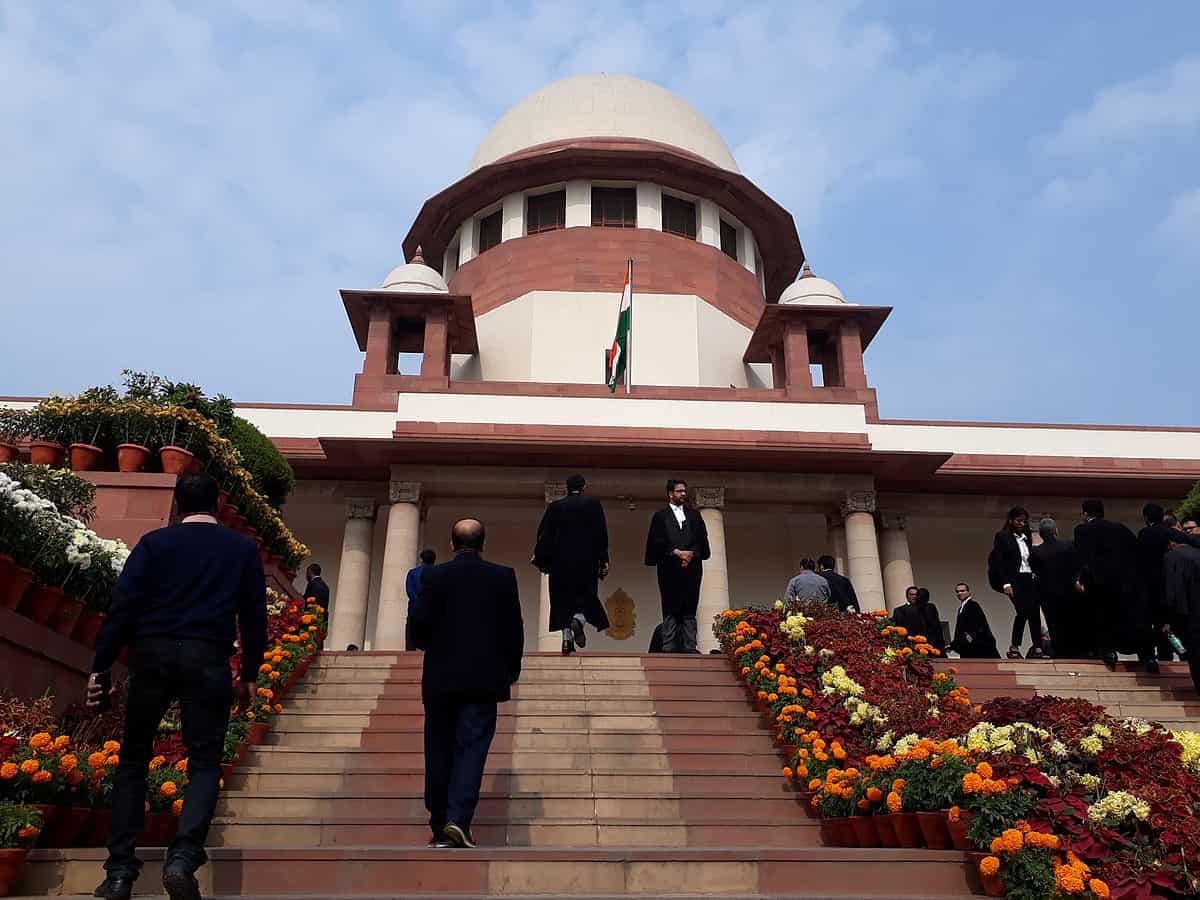
New Delhi: The Supreme Court Wednesday directed the Maharashtra government to submit data on Other Backward Classes (OBCs) to the SBCC to examine its correctness and make recommendations on their representation in elections for the local bodies.
The top court also directed the State Backward Classes Commission (SBCC) to submit the interim report to the authorities concerned in two weeks of receiving information from the state government.
“Maharashtra has asked this court to permit elections based on data already available to the state concerning other backward classes. Instead of examining the data, the appropriate step would be to present this data before a state appointed dedicated commission which can examine the correctness,” the court said.
“If it deems it appropriate, make recommendations to the state based on which further steps can be taken by the state or State Election Commission… The commission may submit the interim report if so advised to concerned authorities in two weeks from receipt of information/data from the state government,” a bench headed by Justice A M Khanwilkar said.
The apex court clarified, however, that the list to be prepared by the state government concerning socially and educationally backward classes would be independent of the census carried out by the Centre.
“The information and data available to the state can be furnished to the dedicated commission which can take decisions about efficacy thereof and make recommendations to state government as may be necessary. This obviously would not complete the triple test exercise which has to be completed (as per 2010 judgement) before providing reservation of seats in local government for OBC category,” said the bench, also comprising Justices Dinesh Maheshwari and C T Ravikumar.
This observation must also govern different states which are to proceed for elections of local govt, the top court, adding that until the triple test is complete, these seats will be treated as open category.
Senior advocate Shekhar Naphade, appearing for Maharashtra, submitted that the state has some data on the basis of which reservation can be sustained.
He said there are elections in March and data is already before the commission.
“Your lordship may tell the commission to submit a report in two weeks so we can act on the March elections. Otherwise a large section of the community might go unrepresented,” he said.
With regard to Madhya Pradesh, Additional Solicitor General K M Nataraj, appearing for the state, stated that the Election Commission has cancelled the Madhya Pradesh Panchayat Raj Evam Gram Swaraj (Amendment) Ordinance 2021 and assured that the new ordinance would be in accordance with apex court’s directions.
Senior advocate P Wilson, appearing for one of the intervenors, said the OBC category does not have adequate representation. “We are happy with your lordship’s decision to leave it to the commission.”
The top court on December 17, 2021 had directed the state election commissions of Maharashtra and Madhya Pradesh to re-notify the seats reserved for the OBCs in the local bodies under the general category.
The order referred to the Constitution bench verdict of 2010 that had mentioned three conditions, including the setting up of a dedicated commission to conduct a contemporaneous rigorous empirical inquiry into the nature and implications of the backwardness qua the local bodies in the states, which are required to be followed before provisioning such reservation for the OBC category.
It had also said that subsequently a three-judge bench of the court had reiterated the same.
The apex court had observed on December 17 that it had passed an order on December 15, directing the State Election Commission of Maharashtra to notify the seats in the local bodies that were reserved for the OBCs as general category seats.
In March last year, a three-judge bench of the apex court had said the reservation in favour of the OBCs in the local bodies in Maharashtra cannot exceed 50 per cent of the total seats reserved for the SCs, STs and OBCs taken together.
It had referred to the three conditions noted in the constitution bench verdict of 2010.
The conditions included specifying the proportion of reservation required to be provisioned local body-wise in light of the recommendations of the commission so as not to fall foul of overbreadth and in any case, such reservation shall not exceed an aggregate of 50 per cent of the total seats reserved in favour of the SCs, STs and OBCs taken together.



